KnoNap
Georgetown University
KnoNap, the napkin that knows, is a cocktail napkin that detects specific date rape drug presence upon saturation.
2020 Winner: $25,000
Zero Mass Water Technology for Social Equity Prize
- Imaginative solutions lead the way at 2021 ASU Innovation Open
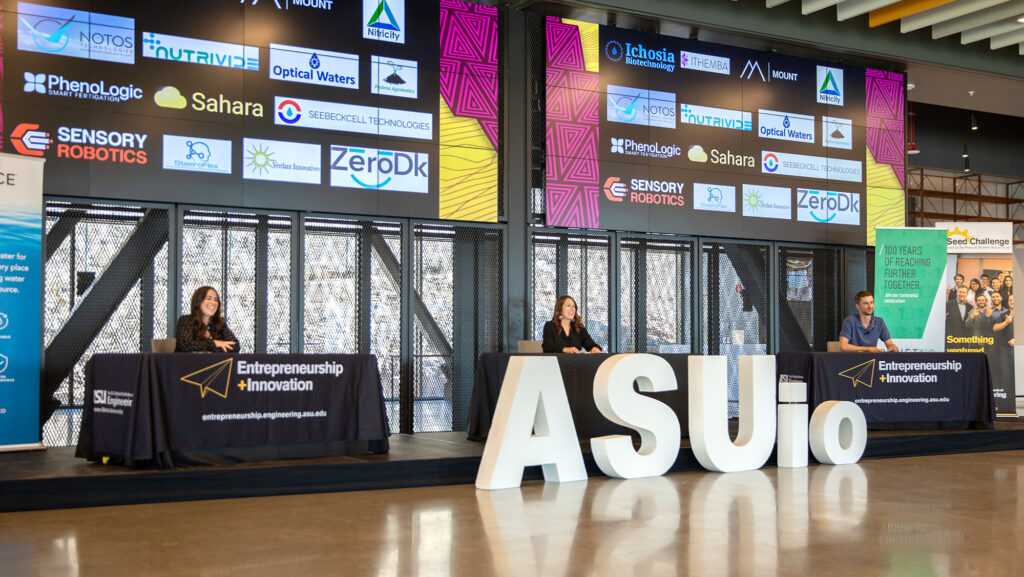
Imaginative solutions lead the way at 2021 ASU Innovation Open
Collegiate entrepreneurs from around the world win $340,000 in cash and services at 5th annual pitch competition.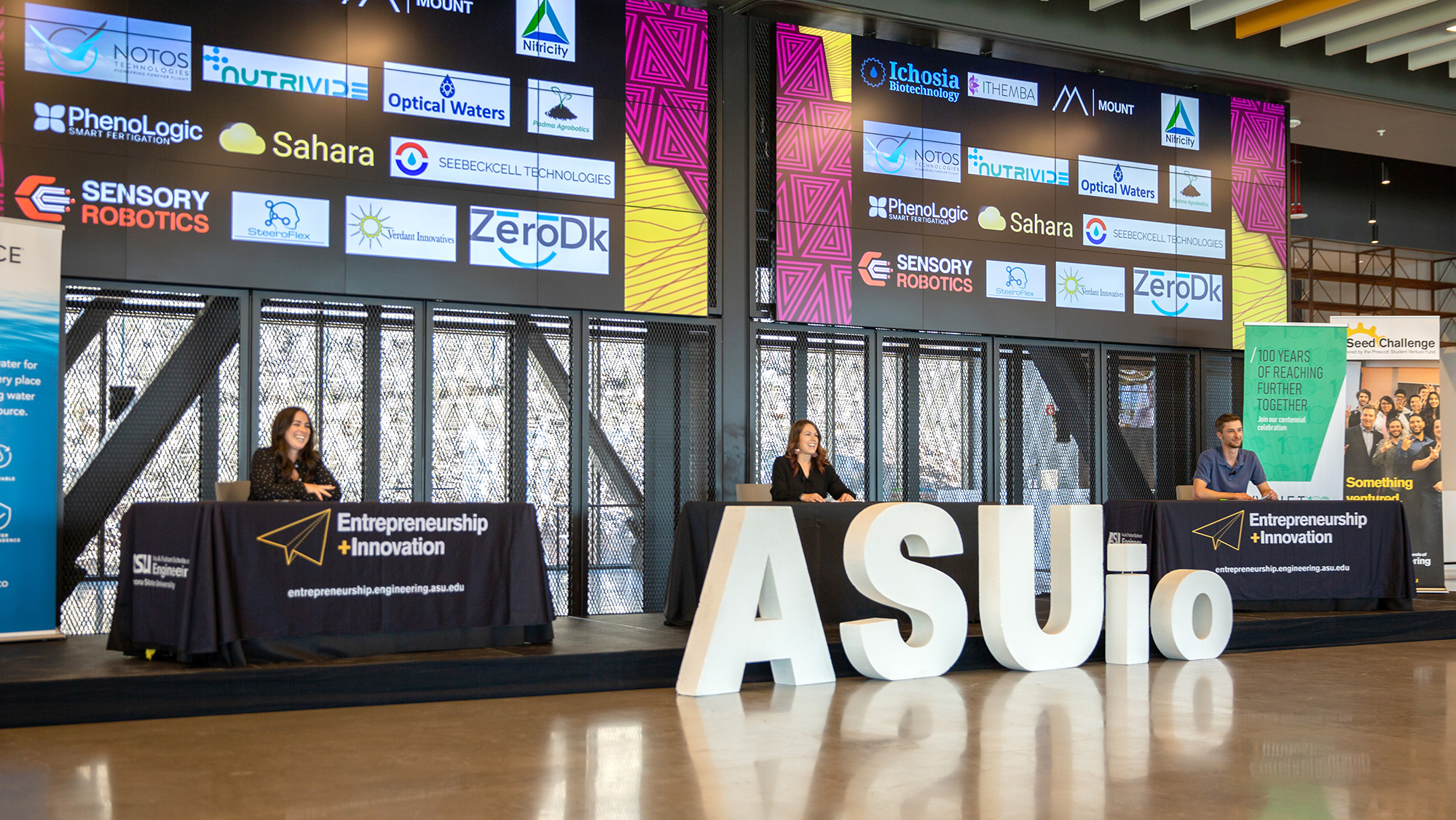
Above: The fifth annual ASU Innovation Open awarded seven teams more than $300,000 in prizes and in-kind services to support the advancement of their startups — including two $100,000 grand prize winners. Photographer: Connor McKee/ASU Clean tech and energy storage solutions emerged as the big winners at the fifth annual ASU Innovation Open.
In the competition’s first virtual event, spectators from around the world watched live as the student innovators waited to find out which ventures rose to the top. In all, seven teams won more than $300,000 in prizes and in-kind services to support the advancement of their startups — including two $100,000 grand prize winners.
Innovation is the driving force behind so much of the positive change we see in the world today. ASUio invites the highest level of collegiate entrepreneurs to compete against peers who are designing solutions to address the world’s most pressing challenges.
“Combining the drive of entrepreneurs with technology leaders like our sponsors, and an incredibly innovative university, ASU, we have been able to build a vibrant ecosystem,” said Cody Friesen, associate professor of materials science and engineering in the Ira A. Fulton Schools of Engineering at ASU and CEO of SOURCE Global, one of the ASUio sponsors. “Past participants have been highly successful and this program has proven beneficial to everyone involved. We’re especially excited about this cohort of amazing founders that are solving really important problems.”
Selected from over 100 teams — the most the competition has ever seen — 30 student ventures representing 25 universities were invited to participate as semifinalists in Friday’s event.
A team of judges, comprised of tech innovators, mentors, startup leaders and industry experts, had the difficult job of narrowing the playing field in one of the most competitive groups of ventures in the competition’s history. As the number of submissions grew, so did the diversity of the applicants. Sixty percent of the submitted ventures were minority-led, and women were at the helm of a full third of the teams.
One such team was ASU startup Optical Waters, co-led by Mariana Lopes, a recent PhD graduate from the ASU’s Fulton Schools of Engineering and Mariana Marcos, a current PhD student at the University of Texas at El Paso. Their team won the $25,000 Technology for Social Equity Prize sponsored by SOURCE Global, for their adjustable germicidal optical fibers that use light to eliminate biofilms in small tubes.
“Bacterial pathogens love to grow it in hard-to-reach areas,” explained Lopes. “They grow in your sink pipe, refrigerator, coffeemaker — anywhere that water flows through a piped channel, it can form a biofilm and infect users even after the water has been treated.”
Optical Waters’ technology has the potential to revolutionize human health by driving out the pathogens that exist in water distribution systems, storage systems and medical equipment, like catheters, endoscopes and endotracheal intubation devices.
The competition’s biggest winners are making headway with advances in IoT and energy solutions.
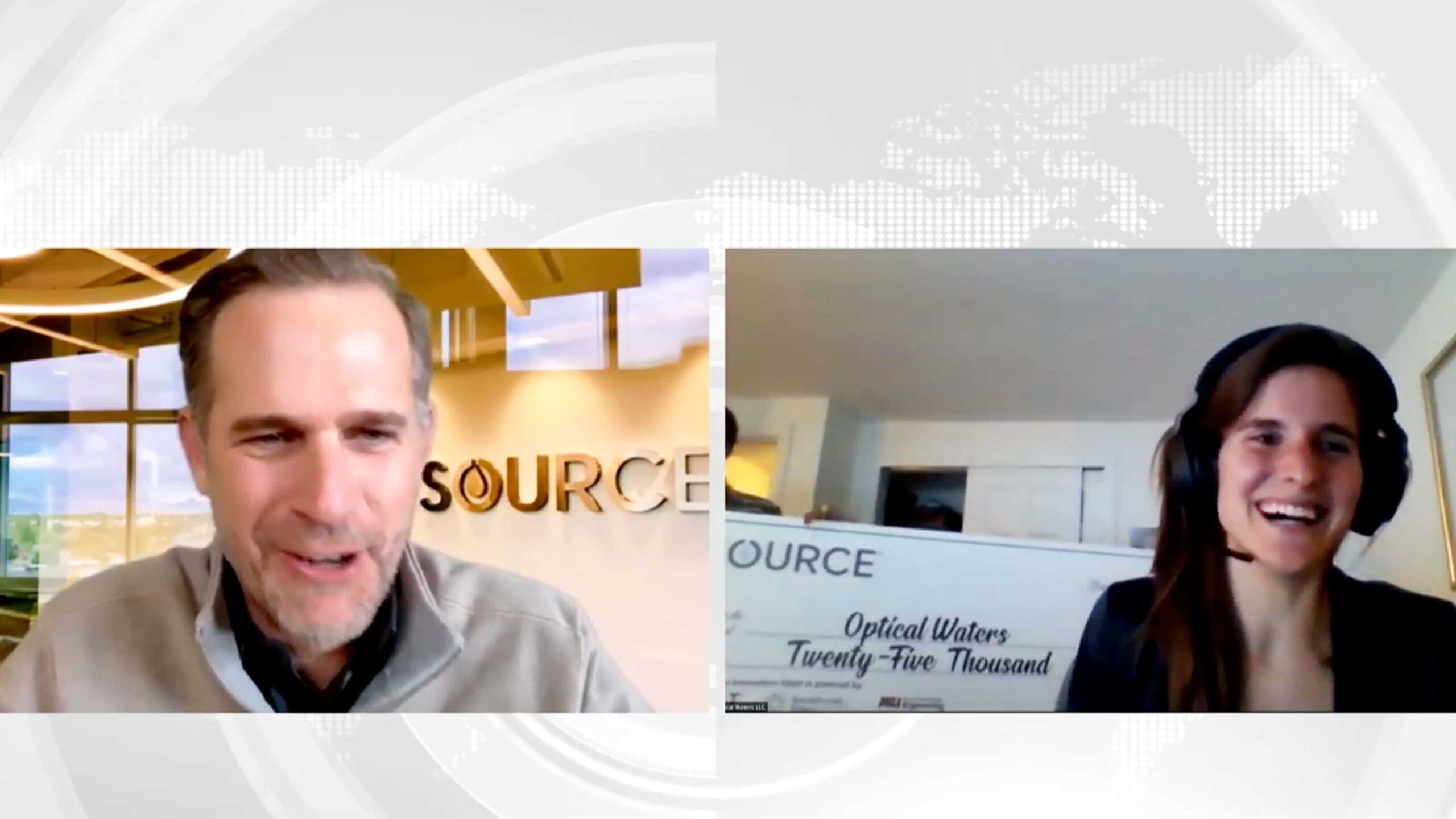
Fulton Schools Professor and SOURCE Global CEO Cody Friesen awarding the $25,000 Technology for Social Equity Prize sponsored by SOURCE Global to recent Fulton Schools doctoral graduate Mariana Lopes, CEO of Optical Waters during the 2021 ASU Innovation Open. David Dellal, a doctoral student at Yale University, won the $100,000 grand prize for IoT solutions from Avnet. His company, Floe, has developed a smart, cost-effective, and environmentally-friendly solution to prevent the extensive water damage caused by ice dams to residential and commercial buildings each winter. The Floe system relies on advanced IoT sensors and machine learning to determine exactly when to deposit a non-corrosive, biodegradable de-icing fluid onto roofs. The Floe system has already been adopted by municipalities and top ski resorts.
“We’re solving a real problem for our customers by reducing costs, by reducing the carbon footprint more than 99% and reducing liability for workers across United States and around the globe on a large scale by beating all the competitive products out of the water,” said Dellal.
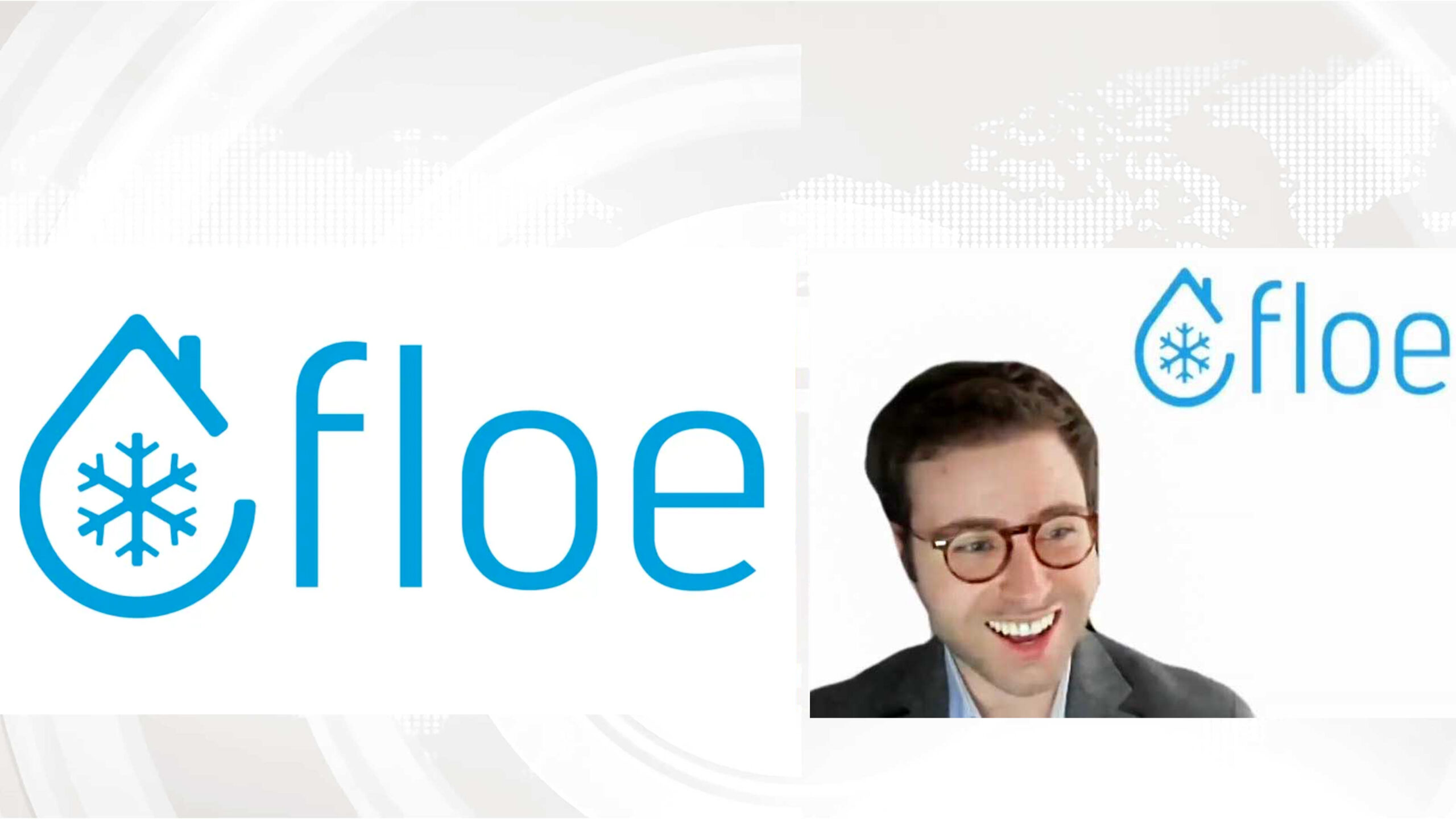
David Dellal, CEO and founder of Floe won the $100,000 grand prize for IoT solutions from Avnet at the 2021 ASU Innovation Open. Avnet, a global leader in electronic components and services, selected Floe for its innovative technology solution. Avnet is a founding sponsor of ASU Innovation Open, sponsoring $100,000 prizes to support student entrepreneurship since the competition’s inception five years ago.
“It’s my honor, on behalf of Avnet, to recognize the creativity and talent. I feel really good about this next generation and what’s to come,” said Phil Gallagher, the new Avnet CEO. The future’s really bright. We look forward to offering our global design services to you as you grow “Avnet’s going to be right there with you helping to bring some of these ideas to life.”
Sophia Wennstedt, the CEO and co-founder of blip energy, accepted the $100,000 Climate Change prize sponsored by Breakthrough Energy Ventures. Blip is a residential energy storage company focused on democratizing energy storage and accelerating the adoption of renewable resources. Uniquely, blip is currently catered to helping renters, who comprise 36% of U.S. households, save money on their energy bills.
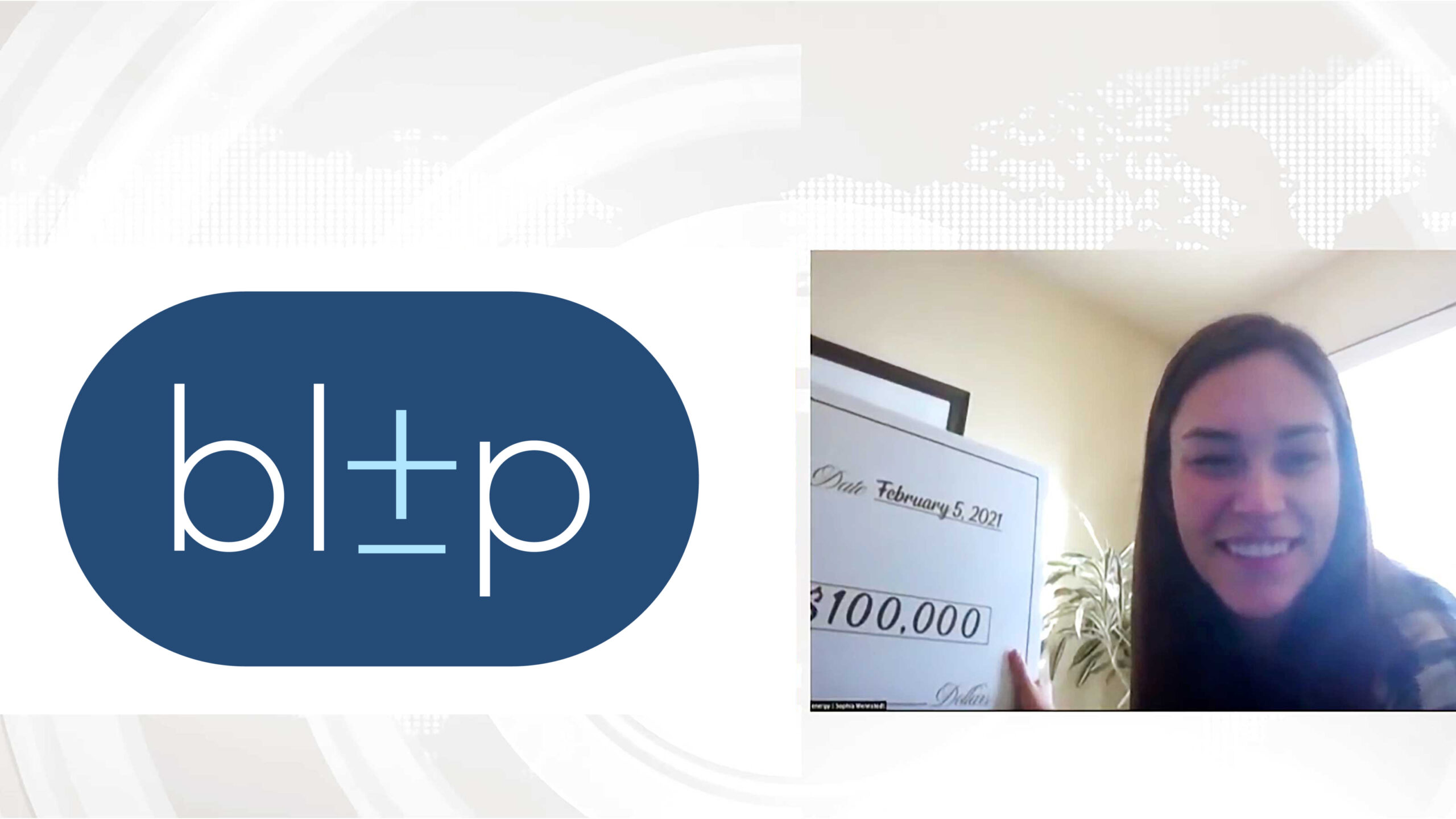
Sophia Wennstedt, CEO and co-founder of blip energy, accepted the $100,000 Climate Change prize sponsored by Breakthrough Energy Ventures at the 2021 ASU Innovation Open. “Our goal is to expand access to energy storage,” said Wennstedt. “We’re doing that by providing an affordable, accessible residential smart battery that, at scale, will also help utilities begin to reduce their reliance on dirty peaker plants. We believe that everyone has the right to energy storage. It’s the future and it’s the key to a stable grid. And we are, to my knowledge, the first folks who are delivering it at this price point by using second-life lithium-ion batteries.”
Breakthrough Energy Ventures, a $2 billion investment fund by Bill Gates, helps advance game-changing innovations and technologies to address climate change.
Libby Wayman, an investor at Breakthrough Energy Ventures and last year’s ASUio keynote speaker had a special message for the student innovators.
“We’re just so thrilled to be a part of ASUio. Entrepreneurs like all you guys in this competition — you guys can do more than just be good at what you do. You see the world and you see how it can be better and how it can change, and then make that happen,” Wayman said. “And that’s really special. Change doesn’t happen without big ideas and without people like you pushing them forward.”
The other 2021 ASUio winners were:
- Nutrivide of Rutgers University, who won the $5,000 AWS Prize sponsored by Amazon Web Services. The prize was presented to Clairisse Whang and Akshay Kamath who have produced an infant nutrition pacifier. Their company aims to enhance quality and convenience in the infant care process, reduce plastic waste in products and packaging, and offer affordable solutions for all parents.
- Cynteract GmbH won the Hardware Engineering Prize sponsored by ASU eSeed and SilSync, earning $25,000 cash and $25,000 in-kind design services. Gernot Sümmermann of RWTH Aachen University accepted the prize on behalf of ASUio’s first global finalist. Cynteract brings gamification to rehabilitation with a sensor-enabled smart glove.
- Jama Mohamed, founder of Sahara Cloud, won $25,000 cash and $10,000 in AWS credits for the Amazon Alexa Prize sponsored by Amazon Alexa + Amazon Web Services. Sahara is a cloud-based platform that allows developers to virtually access physical boards and sensors to test equipment in the cloud without the need to physically acquire hardware components.
- Nitricity’s cofounder Nicolas Pinkowski of Stanford University accepted the ON Semiconductor $25,000 cash Transform Your Thinking Prize. Nitricity produces on-site fertilizer using air, water and solar electricity to allow owners of irrigated farms to decrease their fertilizer, acid and labor cost by $200 per acre.
Ranked as the nation’s most innovative university for six consecutive years by the U.S. News & World Report, ASU is the ideal university to host a competition of this caliber. ASUio competitors are undergraduate and graduate students who are generally beyond the idea stage of their venture. Many have developed prototypes, and some even have early pilot customers. At ASUio, competitors get to share their adaptive, scalable real-tech ventures to the ASU entrepreneurial community.
Danya Sherman won the $25,000 Social Equity Prize in last year’s competition for her company KnoNap, which develops discreet gender-inclusive diagnostic tools that help prevent drink spiking. She has since been named to Forbes’ 30 Under 30 list for social entrepreneurship and has raised even more capital for her venture. Sherman returned to the competition this year to offer advice and share her experience with the newest round of competitors as part of the show.
ASUio viewers were also treated to an insightful keynote conversation between ASU Director of Design Integration Cheryl Heller, and Ivy Ross, the vice president of hardware design at Google. Creation and design are inherently part of entrepreneurship. Ross suggests founders keep a few things in mind as they innovate.
“First you have to put yourself in the position of observing problems,” she says. Then ask “what problem am I solving that no one has solved before? Or how can I do what’s already being done that much better?”
Along with getting guidance from some of technology’s most influential voices, students in the competition also get support from generous sponsors and dedicated mentors who donate their time and resources to the ASUio competitors. Alongside the prize sponsors, representatives from several entities participated as mentors, including experts from Altium, Amazon, the Arizona Commerce Authority, August United, Mayo Clinic Arizona, Solid Works and GoEngineer, SRP, Theil Capital and Zenni Optical among others. ASU sponsors also include the Fulton Schools of Engineering and the Arizona Board of Regents, with additional support from ASU’s J. Orin Edson Entrepreneurship + Innovation Institute, the ASU Mayo MedTech Accelerator, and the ASU Knowledge Enterprise.
This year, winners can look forward to yet another opportunity exclusive to the ASU Innovation Open experience. ASUio is collaborating with Entrepreneur Media to have a select group of ASUio winners participate in the hit reality series Entrepreneur Elevator Pitch. The show has garnered more than 156 million series views across Entrepreneur.com across multiple platforms in the show’s past six seasons.
Stay tuned for more news about ASU Innovation Open on the ASUio website, and watch a recording of the live competition on YouTube.
- ASU Innovation Open 2020 announces semifinalists
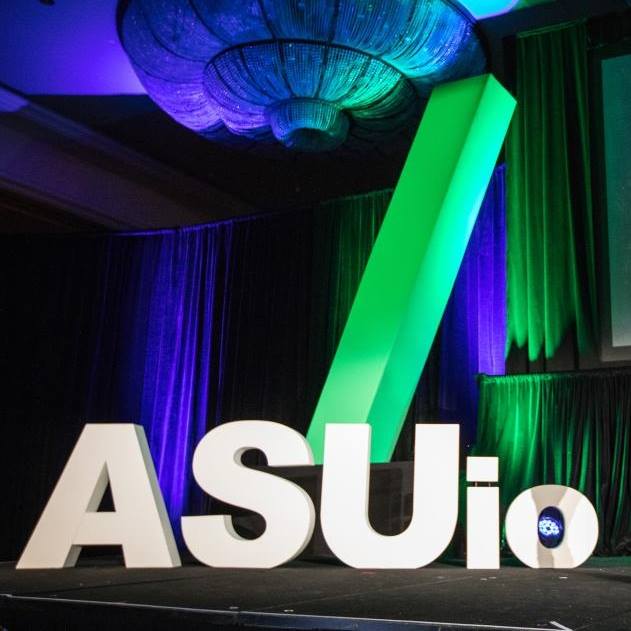
FOR IMMEDIATE RELEASE: November 21, 2019
ASU Innovation Open 2020 announces semifinalists
Technology innovators from universities around the world to pitch for $300,000 in grand prizesASU Innovation Open has announced the semifinalists for Arizona State University’s most exciting pitch competition, taking place January 31, 2020, in Tempe, Arizona. Competitors will pitch their student-led ventures for a chance to win $300,000 in prizes, including two $100,000 grand prizes.
Powered by ASU’s Ira A. Fulton Schools of Engineering, Avnet and Breakthrough Energy Ventures, ASU Innovation Open is designed to challenge and advance collegiate startups that are harnessing the power of entrepreneurship to tackle the world’s most challenging problems. ASU Innovation Open sponsors and supporters provide critical venture mentorship and funding for student competitors with a focus on conscious capitalism.
Innovation Open represents ASU’s commitment to valuing entrepreneurship in all of its forms. For the fourth consecutive year, we have the opportunity to play a role in this impactful experience for young innovators as they move one step closer to bringing their ideas to the marketplace. Ira A. Fulton Schools of Engineering Dean Kyle Squires
Representing 46 universities around the world, applications from student-led ventures rose by more than 60% in the last year. It was also the most diverse applicant pool ASU Innovation Open has seen to date, with half the teams that applied being led by minorities, and 25% by women.
“This year we saw a meteoric rise in the number of applications since last year’s competition,” says Cody Friesen, ASU associate professor of materials science and engineering and CEO of Zero Mass Water, one of ASU Innovation Open’s founding sponsors. “The talent among these competitors continues to impress us and we’re looking forward to a strong competition in January.”
In the day-long, marathon event, the competitors selected as semifinalists will pitch their leading-edge technology solutions to a panel of start-up leaders and industry experts in areas like artificial intelligence, autonomous transportation, agricultural and climate technology, health care, internet of things, photovoltaics, wearable technology and more.
Scheduled to be held in ASU’s 365 Community Union – an innovative new venue designed for sustainability at the ASU football stadium – the space will serve as the perfect backdrop for this entertaining event known for its spirit of healthy competition and entrepreneurship.
The 2020 ASU Innovation Open semifinalists are:
- Acoustic Wells – Massachusetts Institute of Technology
- Aerate – University of Pennsylvania
- AlgenAir – University of Maryland
- Alto Power Company – Stanford University
- Closed Composites – University of Southern California
- Contraire – Oklahoma State University
- Drivemate by I-ADAS Technologies Inc. – Ohio University
- Edgehog Technologies – Université du Québec à Montréal (UQAM)
- Educational Vision Technologies – University of California, San Diego
- Feros Freight – University of Michigan
- Frost Control Systems, Inc. – University of Notre Dame
- Halen LLC – Arizona State University
- Haystack Ag – Massachusetts Institute of Technology
- Insanirator – Massachusetts Institute of Technology
- Kiri – Brigham Young University
- KnoNap – Georgetown University
- Nanodropper – Mayo Clinic – University of Washington
- NeXST Rehab – Arizona State University
- Ocular Technologies – Harvard University/Massachusetts Institute of Technology
- Odin Technologies – Northwestern University
- Omniply Technologies – Carleton University
- PreOv – University of Utah
- Sensagrate – Arizona State University
- Showcase – The Pennsylvania State University
- si.vision – Massachusetts Institute of Technology
- SmartRest – Cornell University
- Visos – Syracuse University
- Zilper Trenchless – Massachusetts Institute of Technology